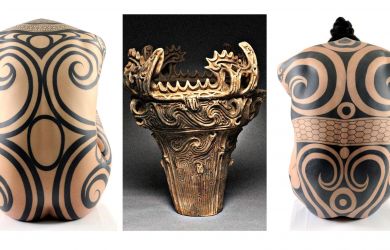
September 10, 2009
SLAPP Happy
Freedom of speech in Japan is under threat. Here's why...
By Metropolis
Originally published on metropolis.co.jp on September 2009
You’re relaxing at home one night when the telephone rings. The caller is a magazine editor who you haven’t met before. He says that he got your details from an editor you know, and asks if you could help with an article that he’s writing. There isn’t any money in it, but all the same, you answer his questions in good faith.
The following day, you learn that you’re going to have “comments” that you never even made attributed to you in the article. Shocked, you complain to the editorial department, but are told that the deadline has already passed and then ignored.
A few months later, the company that was criticized in the article files a defamation suit against you, demanding ¥50 million in damages. Surprisingly, neither the editor who wrote the article nor the magazine’s publisher is included among the accused. You are dragged through the courts on account of “comments” that you never made, and asked to explain “comments” that you never even thought. The judge doesn’t pay any attention to your defense, and orders you to pay ¥1 million. For 33 months, your life is destroyed by these false charges. Unable to work, with reduced income and legal costs to pay, the damage you’re caused runs to somewhere in the region of ¥10 million.
What I’ve just written may sound like something out of Franz Kafka’s The Trial. You may even find it too implausible to believe. But it isn’t fiction. In November 2006, long-running music chart compiler Oricon filed a civil lawsuit against me, and that’s a summary of what happened.
After a bitter courtroom fight, the trial came to a close on August 3, when Oricon unilaterally abandoned its claim while it was on appeal at the Tokyo High Court. In Japan, the abandonment of a civil lawsuit is equivalent to an admission of defeat. Unlike the withdrawal of a lawsuit, it is a rare occurrence, resulting in the closure of less than 0.1 percent of trials each year. For Oricon, it was the worst possible outcome—a dishonorable hara-kiri. If you want a war metaphor, it was like an army invading your country, only to suddenly raise a white flag and kill themselves. The battle to defend my country ended in victory.
Still, this isn’t cause for celebration. There’s no way of undoing the mental and financial damage I incurred over those 33 hard months. Cyzo, the magazine which twisted my words in an article questioning the methods Oricon uses to compile its rankings, has promised to pay me ¥5 million as an apology, but that only covers half of the damage.

Illustration by Phil Couzens
As for Oricon, their whole purpose was to saddle me with legal costs and silence critical articles, so it may not matter to them whether the lawsuit succeeded or failed. This is what’s called a SLAPP (Strategic Lawsuit Against Public Participation) suit in English. More than 25 states and territories in the USA have legal measures in place to provide protection against such lawsuits. Yet I discovered through my experience that the term SLAPP doesn’t exist in Japanese literature, let alone in Japanese law. This means, of course, that lawyers and legal scholars don’t operate on the assumption that civil lawsuits could be used to silence public speech. There isn’t even a law against improper litigation, and if you file a claim against such an abusive lawsuit, the court normally won’t recognize it.
In the past couple of years, there have been SLAPP suits for between ¥10 and ¥20 million filed against a whistleblower who accused a bank of internal fraud in the media, and residents who put up signs in their own windows to protest against the construction of an apartment building. There is a loophole in Japanese law that allows the stronger members of society (large corporations, the government, municipalities and the wealthy) to use lawsuits as a way of attacking the weak.
The past 33 months have been a long, hard slog, but it wasn’t all bad. I’ve been shown my life’s work as a journalist—namely, to expose the threat that SLAPP suits pose to freedom of speech. I’d like to go the USA, for instance to California, and conduct interviews with experts on SLAPP suits, lawyers, scholars and NPOs, then write a book. As a journalist, I have to warn society that the Age of SLAPP has arrived in Japan too.







